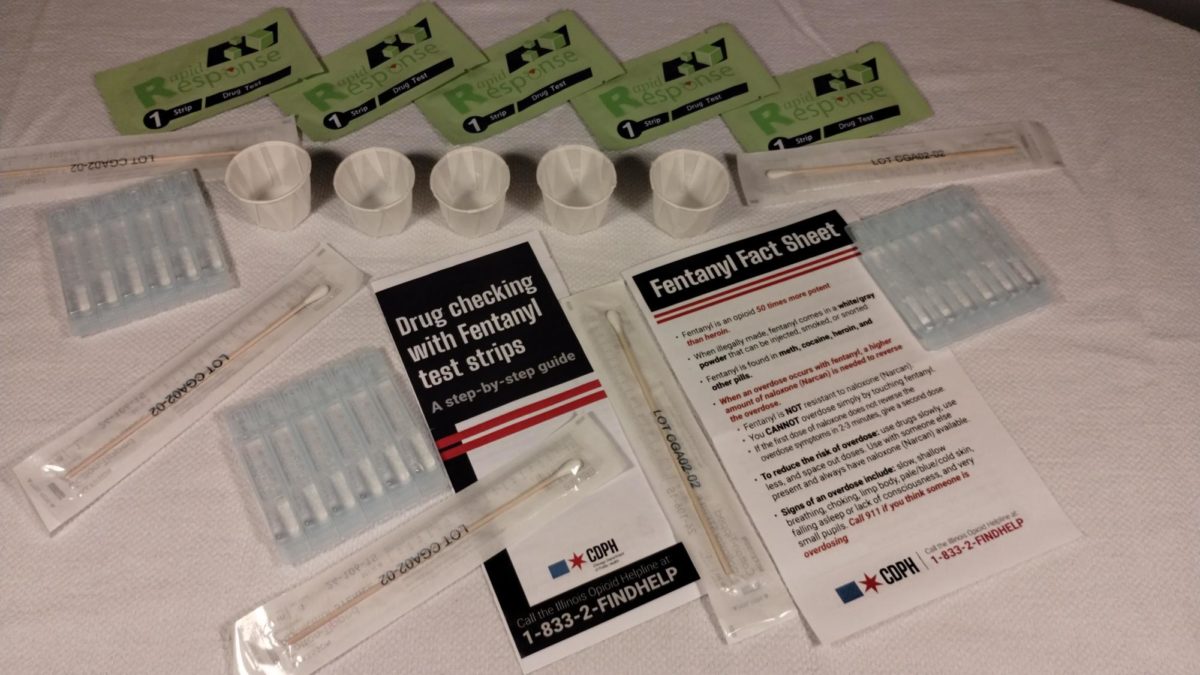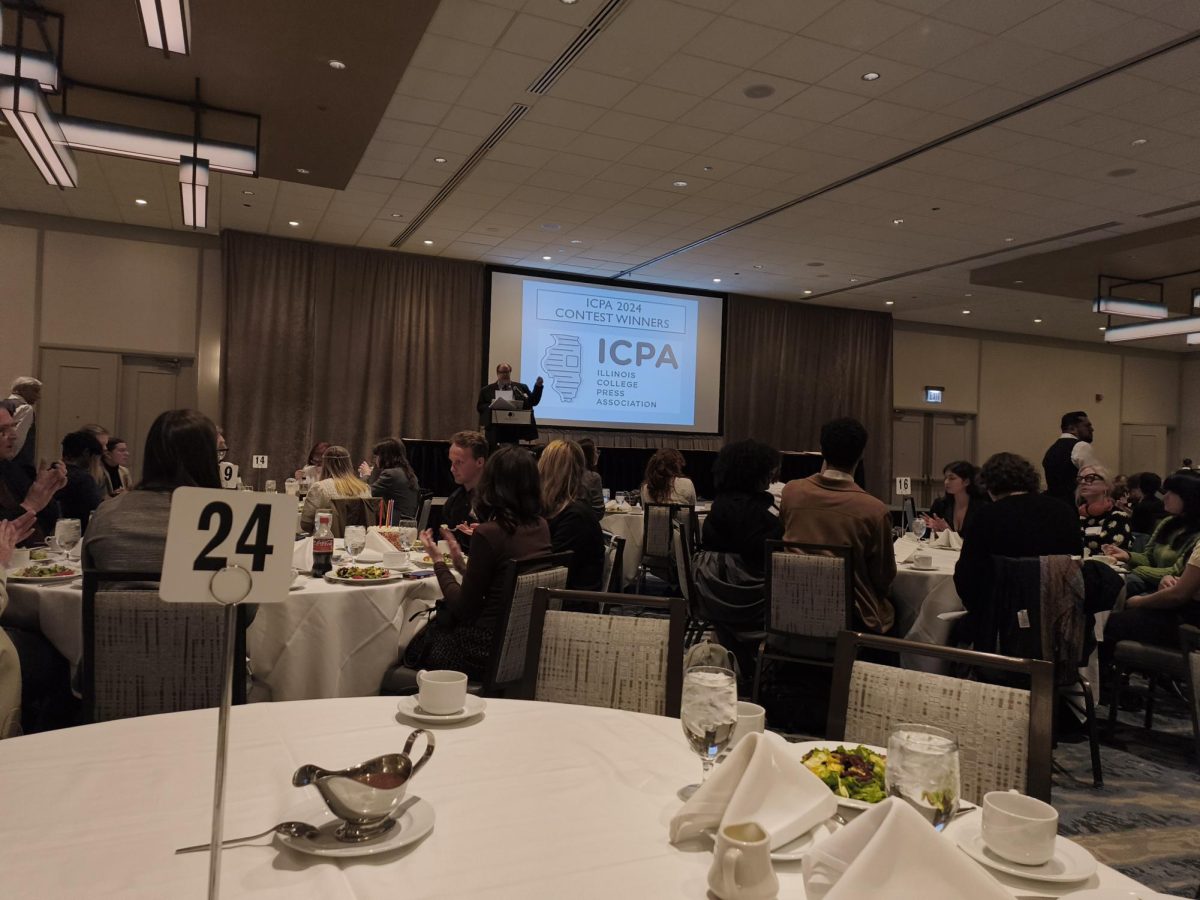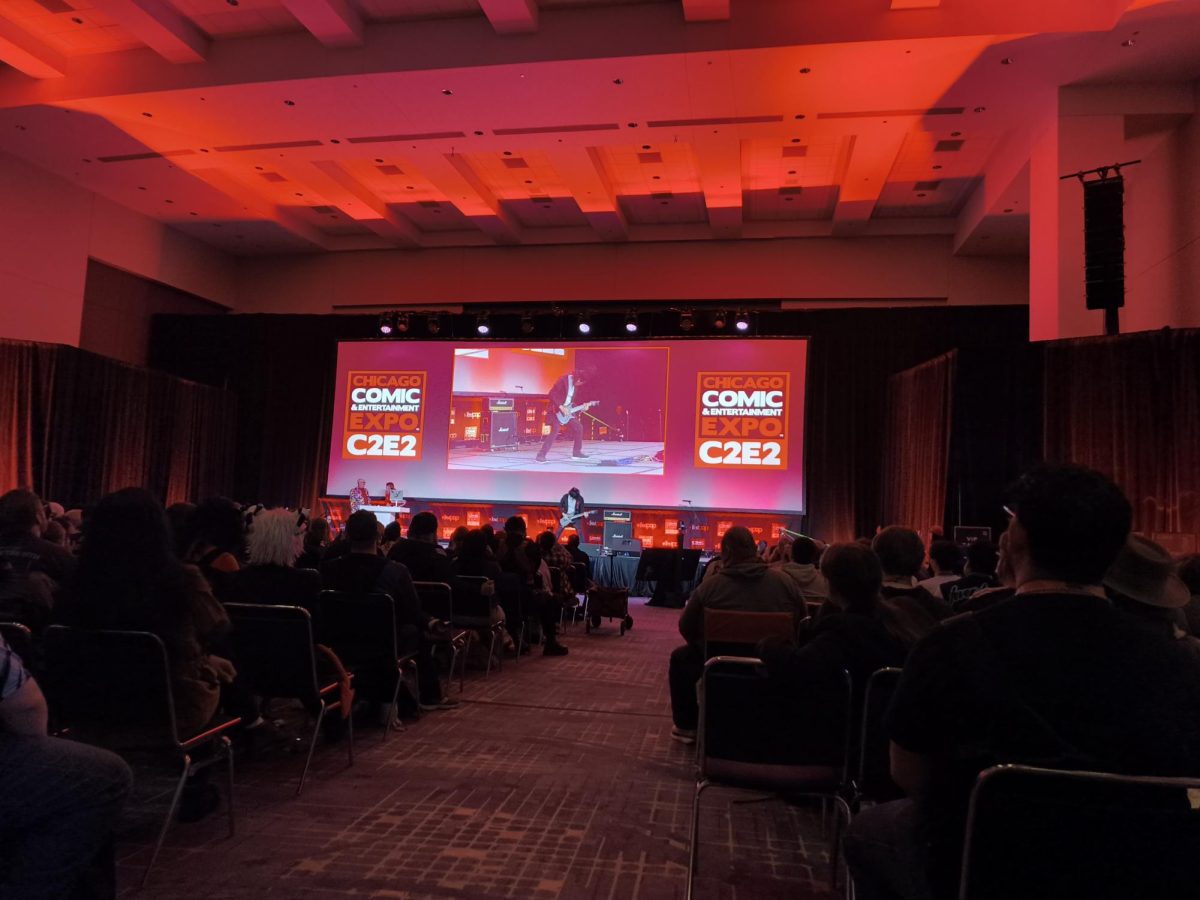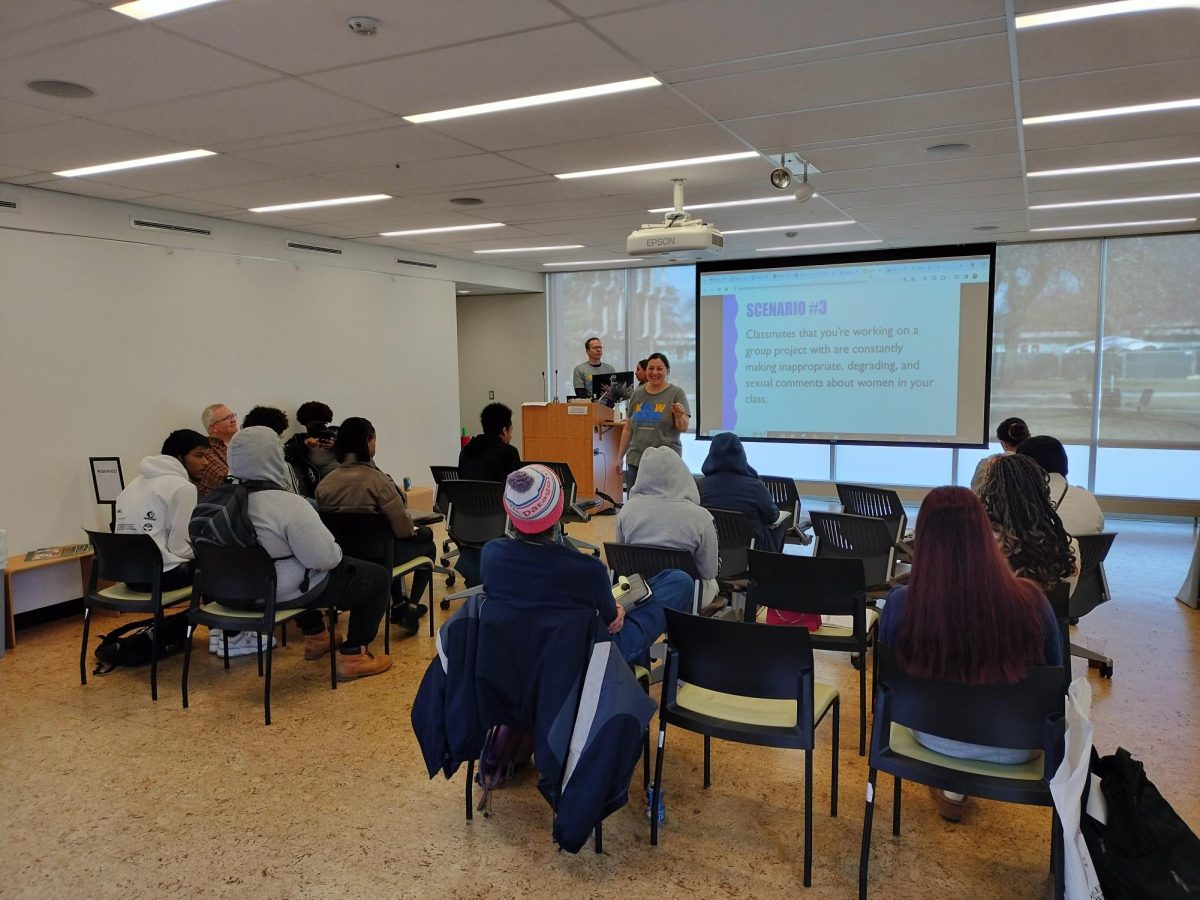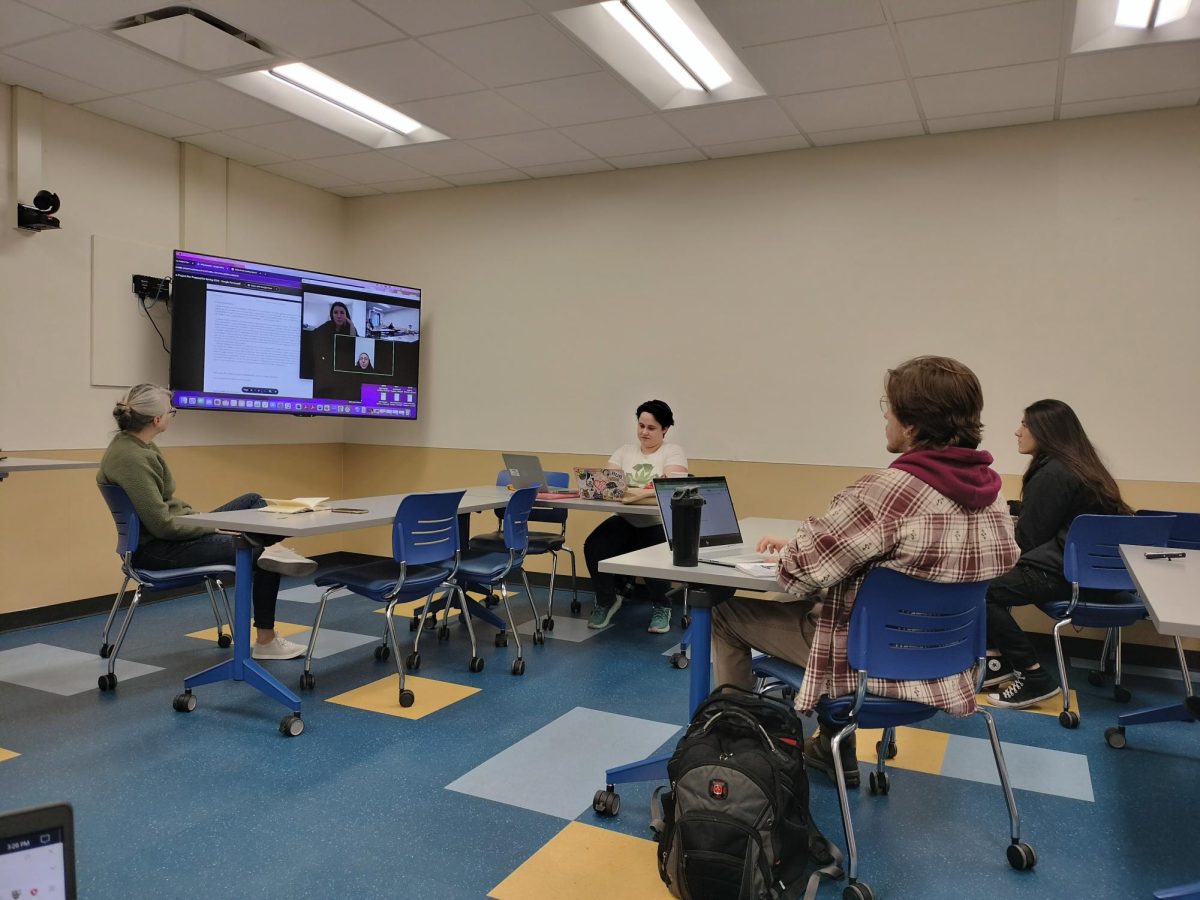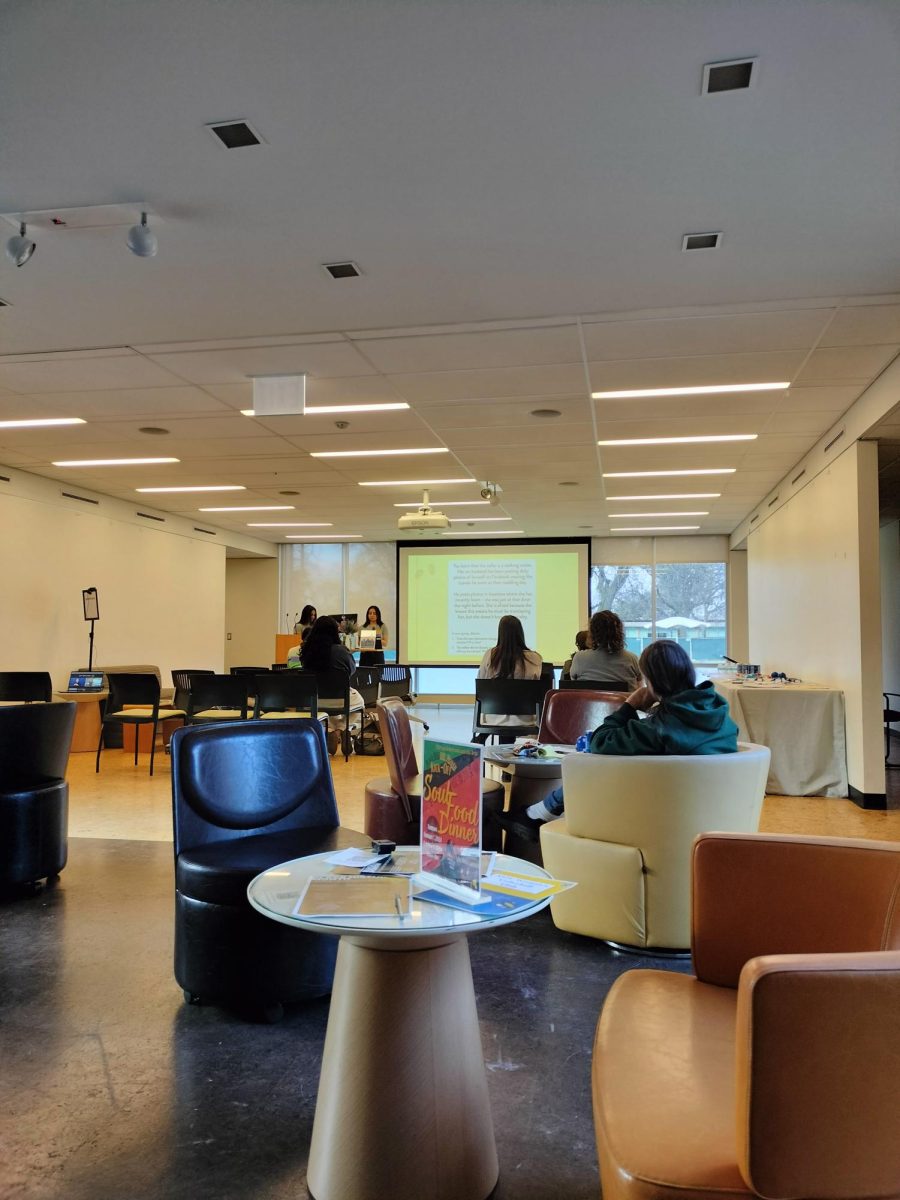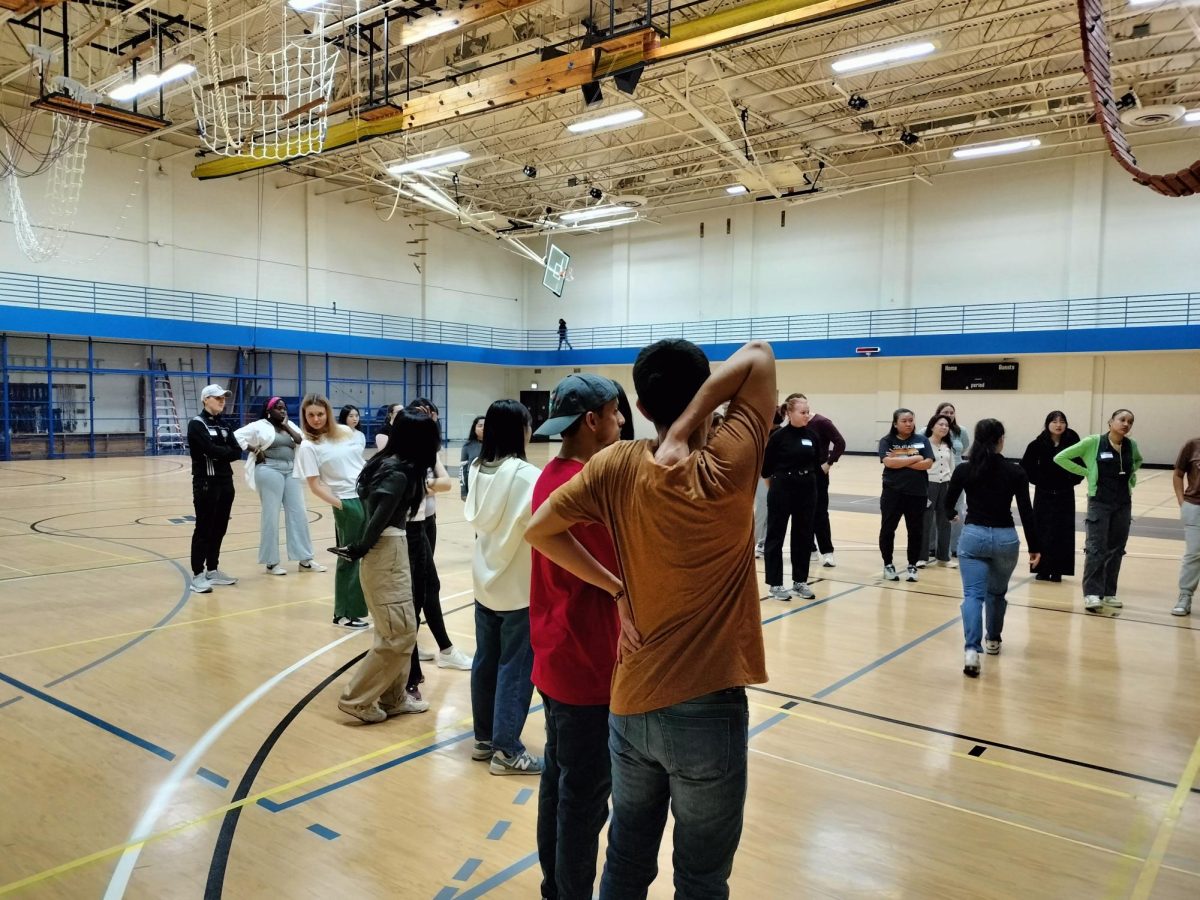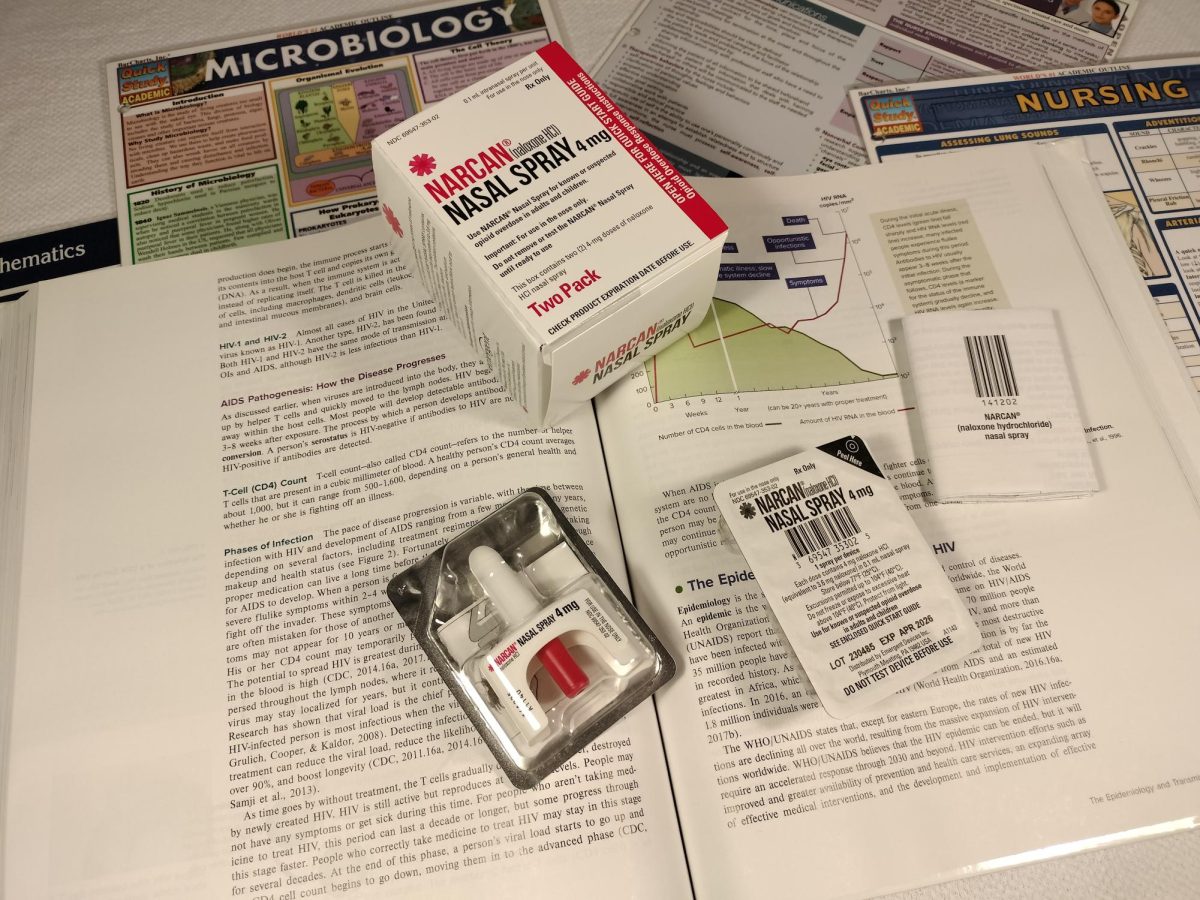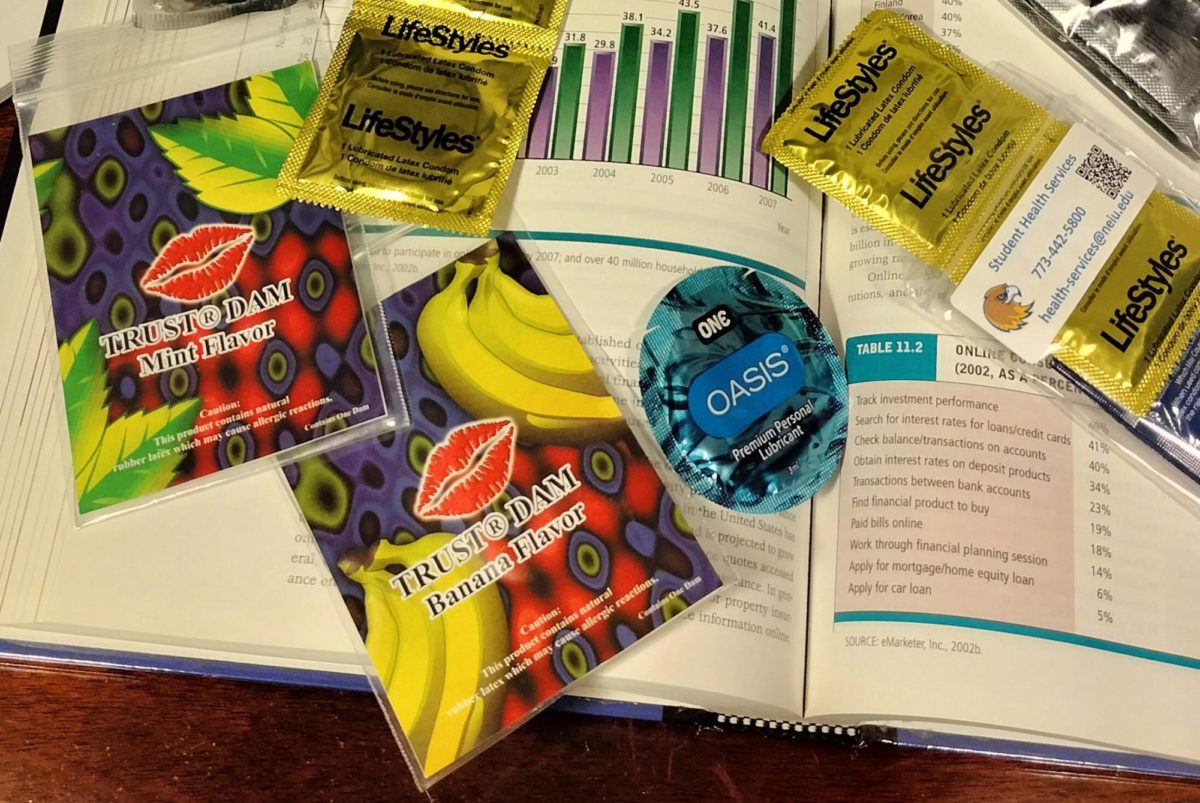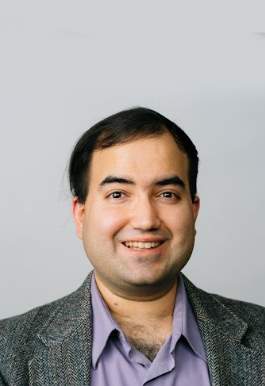On Thursday, Aug. 31, 2023, NEIU Student Health Services hosted a seminar luncheon on substance abuse and harm reduction by inviting Tapestry 360 Health to speak about the public health topic of drugs, substances and how to navigate the pathway of addictive behaviors. Nana Tsuladze, Licensed Clinical Social Worker (LCSW), sheds light on harm reduction, unhealthy behaviors, problematic patterns, excessive use and drug recovery tactics. “This is the first year that we’re doing this,” stated Tsuladze, “to just provide more support to our community,” and partner with NEIU to bring attention to substance abuse.
The seminar provided information on various substances, including alcohol, cannabis, high-risk pills and stimulants. According to Tapestry 360’s seminar, some of the most widely abused drugs on college campuses include a class of drugs that fall in the category of central nervous (CN) stimulants. CN stimulants include amphetamines; specific trademarked brands include Adderall, Ritalin and Vyvanse. It is particularly concerning because they are high-risk addictive pills and college students frequently consume them.
“Our big focus is harm reduction, so we don’t discharge anybody for using, misusing, or, you know, things like that. We meet every patient where they’re at,” said Tsuladze to the Independent, “we approach it very holistically.” Additionally, they have a vast array of services, which include acupuncture, medical and behavioral. The most focused harm reduction techniques that Tapestry 360 uses are cognitive behavioral therapies (CBT), contingency management and self-help communities.
Tsuladze desires that the goals of Tapestry 360 deliver information about harm reduction, resources and knowledge to help communities. On one hand, Tsuladze stated, “my biggest goal was to just show the difference between recreational use and harmful behaviors.” On the other hand, Tsuladze said, “my goal is not to tell anybody that they’re using too much or they’re misusing or anything, but to mainly be like, ‘Hey, these are the signs of harmful behavior, and it’s up to you to make that decision, like, if you need it or not.’” One can appreciate Tsuladze’s sentiment that overdoing substances can cause injury and harm, but at the same time, abstinence may not be the answer for particular individuals. Some individuals are capable of enjoying recreational drugs, substances and/or alcohol without developing addictions. It may be important to recognize when the substance use becomes problematic than ostracizing all forms of substances.
Along those lines, Tsuladze insisted that it is imperative to “talk about the harmful effects of alcohol versus abstinence, … connecting students to the necessary resources … [and] … even expand it to other universities.” After recognizing that substance use has transformed into misuse or abuse by an individual, it is important to seek the necessary help, and Tapestry 360 is available to obliterate the problem for individuals struggling with addiction.
Tapestry 360 offers talk therapy and CBT, they also offer medication if people are interested. Tsuladze said to the Independent, “… you can still be a part of our program if you’re just interested in counseling or medications. Nothing is required in a way.”
Tsuladze wants to “keep coming back and raise awareness of harmful behavior every year or every semester and hopefully connect students to the necessary resources.” The substance abuse and harm reduction seminar by Tapestry 360 Health provided valuable insights into substance abuse issues, harm reduction strategies and available resources. The collaborative effort between Tapestry 360 Health and NEIU’s Student Health Services promises a safer and more informed community for all. By providing valuable insights and resources, the seminar has set the stage for ongoing efforts to promote well-being and raise awareness about the importance of responsible substance use. Tsuladze said to the Independent, “harm reduction is the most respectful and self-determined way of approaching substance use, so I hope that we all focus on that versus like, you know, abstinence, or drugs are going to kill you.”



